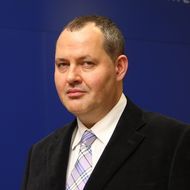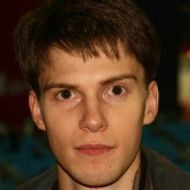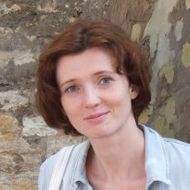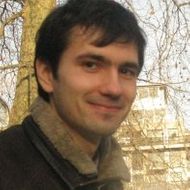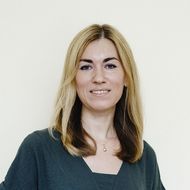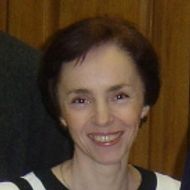- A
- A
- A
- ABC
- ABC
- ABC
- А
- А
- А
- А
- А
- HSE University
- Faculties
- Faculty of Economic Sciences
- News
- Education
- 'We Follow the Traditions and Standards of the Best Business Schools'
-
Departments
- Departments
-
Institutes and Centres
-
- Institute of Economics and Utility Regulation
- Institute for Industrial and Market Studies
- Centre for Labour Market Studies
- International Centre of Decision Choice and Analysis
- Centre of Development Institute
- Centre for Financial Research & Data Analytics
- Economic Statistics Centre of Excellence
- Anti-Corruption Centre
-
-
Laboratories
-
- International Laboratory for Macroeconomic Analysis
- International Laboratory of Stochastic Analysis and its Applications
- International Laboratory for Experimental and Behavioural Economics
- Corporate Finance Center
- Laboratory for Banking Studies
- Laboratory for Labour Market Studies
- Laboratory for Sport Studies
- Laboratory for Wealth Measurement
- Project Laboratory for Development of Intellectual Competitions in Economics
- Laboratory for Spatial Econometric Modeling of Socio-Economic Processes in Russia
-
- Department of Financial Market Infrastructure
- ICEF
-
Educational Programmes
- Bachelor's Programmes
-
Master's Programmes
-
- Economics and Economic Policy
- Agrarian Economics
- Stochastic Modeling in Economics and Finance (Previously, Master's in Statistical Modelling and Actuarial Science)
- Statistical Analysis in Economics
- Economic Analysis (Online)
- Strategic Corporate Finance
- Financial Markets and Institutions
- Corporate Finance
- Financial Engineering
- Master of Business Analytics (Online)
- Investments in Financial Markets (Online)
-
- Doctoral Programmes
-
Faculty
109028, Moscow,
11 Pokrovsky Boulevard,
Room Т-614
Phone: (495) 628-83-68
email: fes@hse.ru
Founded in 1992, the HSE Faculty of Economics is the university’s oldest faculty. In the years since it was founded, it has gained a reputation as Russia’s leader in terms of higher economic education.
A fundamental education in modern economic theory and mathematics is combined with the study of applied disciplines, such as taxation, budget policies and processes, financial management and other related fields.
In press
Applied Econometrics. 2024.
In press
In bk.: Oxford Research Encyclopedia of Economics and Finance. Oxford University Press, 2024.
Dagaev D., Paklina S., Parshakov P.
Social Science Research Network. Social Science Research Network. SSRN, 2024

'We Follow the Traditions and Standards of the Best Business Schools'
In 2016, the Strategic Corporate Finance (SCF) programme is celebrating its 10th anniversary and is becoming fully English-taught. Anastasia Stepanova, a graduate of the programme and its current academic director, told us about the unique features of studying in the programme.
Who do we expect to welcome?
Over the last ten years, we’ve come a long way. We have trained more than 300 Master’s graduates who work in countries around the world. We became part of the European academic community and are members of large associations, including EIASM, EEA, and EURAM. We carry out joint research with international colleagues.
Who are we looking to enrol? We train multi-skilled experts in finance. Our graduates’ qualifications allow them work in any area of finance: banks, hedge funds, consulting, and other areas. To achieve this, however, our students must learn a lot of economics, mathematics, and finance. That’s why our primary expectation of students is that they have a very high level of motivation.
Studying in the programme is not easy. Students often spend the entire day, from 10 am to 9 pm, on campus. They have lectures in the morning, team work in the afternoon, and work shops in the evening.
Our students must have enough energy and time for three main aspects: studies, research (they are supposed to write serious graduation theses here), and self-development. They should master macroeconomics (how can a financial expert not understand the principles of how the economy works?), microeconomics (it teaches them to think and design models), and a year-long course of econometrics, which offers the tools for empirical analysis. In addition, we encourage our students to participate in case championships, applied projects, laboratory work and other activities. Such immersion is necessary for students to have experienced by the time of graduation not only in terms of their knowledge of finance, but also their building of professional links with classmates and lecturers.
Some advice for prospective students
We recommend that all of our applicants acquire a certain level of knowledge in economics and mathematics. Our international students usually have to pay more attention to mathematics, which is vital for economists and financial experts. Students come to the programme and take advanced courses of micro- and macroeconomics. If they feel that they have problems with these subjects, they need to catch up during the summer. We are ready to recommend everything they need for that, including books, online resources, and good courses on Coursera. Such preparation is a prerequisite for the programme.
How do I apply for the programme?
Since 2016, admission to the programme is based on the results of the GRE General Test; we look primarily at the quantitative, mathematical part, and then a little at the essay. However, if an applicant does not have enough time to take the GRE, they can take our internal exam in economics and finance: all materials for preparation are available on our website. Results of GRE and the internal exam are matched according to a special scale. This year, we have 13 spots as part of the Ministry of Education and Science quota for applicants from CIS and developing countries, and there is a separate competition for them. In addition, we admit students on a fee-paying basis each year.
What field of finance do I choose to study?
Trends play a big role here, and trends in finance are changing rapidly, mostly for rational reasons. Several years ago, investment banking and buy-side research, which means work in investment funds, were the trend. The situation has changed, which is why experts who work in stock placement, for example, are not as in demand as those who work in consulting or mergers & acquisitions. But the situation on the market is constantly changing, and demand changes accordingly.
A student’s own goals are also very important, and they often evolve during the first year of studies at the Master’s level. HSE holds a number of workshops by professionals from leading global companies, including department heads, managing directors, and CFOs. This is a way for students to learn about the specific nature of working in a certain financial sphere first-hand, as well as to make their first informed choice, which will help them in finding a summer internship. Having the same task in mind, we try to demonstrate to students the possible tracks at our research seminars. One such track is to spend a semester at another university as part of an exchange programme, or to spend a year there as part of a double degree programme. I did this myself once.
How and why the programme has become English-taught
At a certain point, we realized that we have a lot of exchange students. They were not coming to our programme specifically, but rather to other programmes at HSE and were interested in our courses. Then, Irina Ivashkovskaya, founder of the programme and head of the HSE Department of Finance, decided that all the key courses must be taught in English. And she made sure this happened four years ago. Since the beginning of the new academic year, the programme is becoming fully English-taught.
Two optional courses will be an exception. We left them as Russian-taught at the request of international students who are learning Russian; they believe this is a big advantage.
Why international students are interested in studying finance at HSE
Emerging Markets Finance has recently been gaining popularity. We have a special block dedicated to this field in which we look at how less developed, inefficient markets work, where financial behaviour often deviates from rationality and is less predictable than in developed markets. There are a lot of people interested in working in Russia, China and South America, and our programme offers the knowledge required for this. We don’t limit ourselves to Russian specifically; we look at the diverse range of emerging markets.
During the first year, students take courses that have a broad financial profile, such as Advanced Corporate Finance, Asset Pricing, and Valuation. But each of these courses includes a focus on the specific features of a certain financial aspect in emerging markets. During the second year, students choose an individual trajectory, which may or may not focus on emerging markets depending on students’ interests and preferences. It’s important for students to put together a set of subjects, including electives, that they will study during the second year. We are always ready to help them with this.
Be prepared for team work
Students will have a significant amount of independent work, including team work, which is typical for study at the Master’s level. In these regard, we try to follow the traditions and standards of the best business schools. On September 1, we form teams that are very mixed and include students from a variety of countries and universities. They work in these teams every day in very close collaboration during the first half year. If a team loses even one individual, it can’t be as effective as the others. Each team member must personally participate in all presentations of the team’s results, answering questions and taking part in the discussion.
This is how all business schools and Master’s programmes at good universities work. In a team, you are part of a special environment. You can find yourself in the company of other finance graduates, sociologists, or perhaps even a historian from the University of Bologna (a real example). You have to form a working team with all of them. Such cross education is very important for financial experts, since after graduation, you’ll always work in a team; this team will most likely include people from different cultures and different backgrounds. We prepare our students for this.
Why it’s useful to do research and more
Many students who study in the programme start working part-time. They don’t do this outside of the university – they simply don’t have time for this generally – but rather inside HSE. Our faculty has several laboratories, including the Corporate Finance Centre, which is closely affiliated with SCF. Researchers teach in the programme, and our students often become interns. On the one hand, they come here to develop their analytical skills and write interesting graduation papers; on the other hand, they come here to add qualifications to their CVs. This is very important for financial experts. Our graduates enter a highly competitive global market, and the more they have on their CVs, the better the offer they can get. For example, if a student wants to work for an investment bank in equity research, we understand that a published paper in this field and experience as an assistant professor would be a strong advantage for them. If they want to work in mergers & acquisitions, it would be good to prepare a study in this field or write a thesis supervised by a professional from this area. We are also ready to help with this.
Who teaches in the programme
SCF is a programme with a history. In 2005, Professor Irina Ivashkovskaya launched a programme in finance that was unique for Russia. I was lucky to be one of its first students. It wasn’t easy to get in, but it was thrilling to study there. From the very beginning, Professor Ivashkovskaya selected a mix of scholars and practicing professionals who work in finance every day to make up the teach staff.
We are following this approach. At first, the students learn how it looks in theory, and then they become familiar with the most recent research in a certain financial sphere. They then learn from professionals how things work on developed and developing markets today, as well as how these methods are used or not used. Our academics include renowned professors and holders of PhDs, such as Sergey Stepanov and Olga Lazareva. Our finance professionals include well-known people with significant experience in finance – people you can often see on TV or whose books and blogs are commonly read. Such people include Ivan Rodionov and Elena Chirkova. We work with representatives of the Big Four, with consultants and financial experts from M&A, and others. Our graduates can already be found among these academics and professionals.
Where our alumni work
Russia, Great Britain, the Netherlands, Switzerland, the USA, and Australia are among the countries where you can find our graduates working in financial companies. You can meet them regularly in our workshops. They work in the industry and then come to share their experience with a new generation of students.
- About
- About
- Key Figures & Facts
- Faculties & Departments
- International Partnerships
- Faculty & Staff
- HSE Buildings
- Public Enquiries
- Studies
- Admissions
- Programme Catalogue
- Undergraduate
- Graduate
- Exchange Programmes
- Summer University
- Summer Schools
- Semester in Moscow
- Business Internship
-
https://elearning.hse.ru/en/mooc/
Massive Open Online Courses
-
https://www.hse.ru/en/visual/
HSE Site for the Visually Impaired
-
http://5top100.com/
Russian Academic Excellence Project 5-100
- © HSE University 1993–2024 Contacts Copyright Privacy Policy Site Map
- Edit
